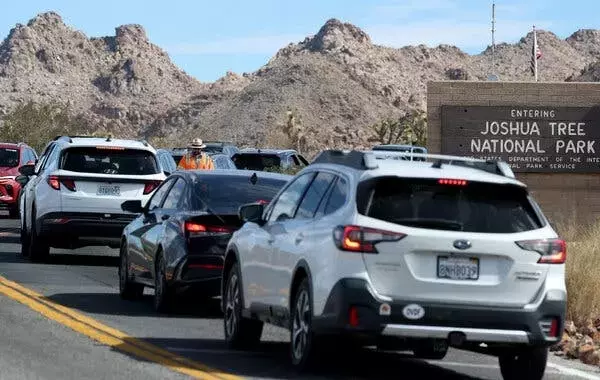
In the midst of firings, resignations, and delays in hiring seasonal workers, the National Park Service is bracing for a tumultuous vacation season. Across 433 sites spanning 85 million acres, closures of campgrounds, reduced hours, and diminished services are becoming commonplace. With over a thousand permanent employees dismissed shortly after President Trump's inauguration, along with hundreds accepting buyouts, staffing levels have plummeted. Legal battles have further complicated matters, reinstating some laid-off workers only to allow their re-dismissal. As the summer looms, parks anticipate larger crowds, longer wait times, and inadequate maintenance.
Details on the Current State of National Parks
Since President Trump assumed office, the National Park Service has faced unprecedented turmoil. In the span of a few weeks, more than 1,000 full-time employees were terminated, while at least 700 others opted for buyouts. This upheaval has left the park service, which typically employs around 20,000 individuals, severely understaffed. Compounding this issue, conflicting court rulings have alternately reinstated and then permitted the firing of these employees once more. According to Kristen Brengel from the National Parks Conservation Association, an additional round of buyouts in April could push the total number of departures close to 2,500.
In the wake of these events, many of the reinstated employees have chosen not to return to their positions. This chaos occurs against the backdrop of national parks already grappling with chronic underfunding. Last year, a record 332 million visitors flocked to these natural wonders. This summer promises even greater numbers, leading to concerns about overcrowding, extended entry waits, closed trails, unsanitary conditions, and uncollected waste.
Rangers, who play a crucial role in traffic management at locations like Joshua Tree in Southern California, may find it increasingly difficult to handle visitor influxes without adequate staffing. To mitigate potential inconveniences, visitors are encouraged to plan meticulously by purchasing passes online well in advance and securing reservations early.
From a journalistic perspective, this situation underscores the importance of stable funding and staffing for national parks. The challenges facing these treasured sites highlight the need for comprehensive policy reform to ensure their preservation and accessibility for future generations. Visitors must also recognize their role in supporting these parks through responsible planning and respectful conduct during their visits.
